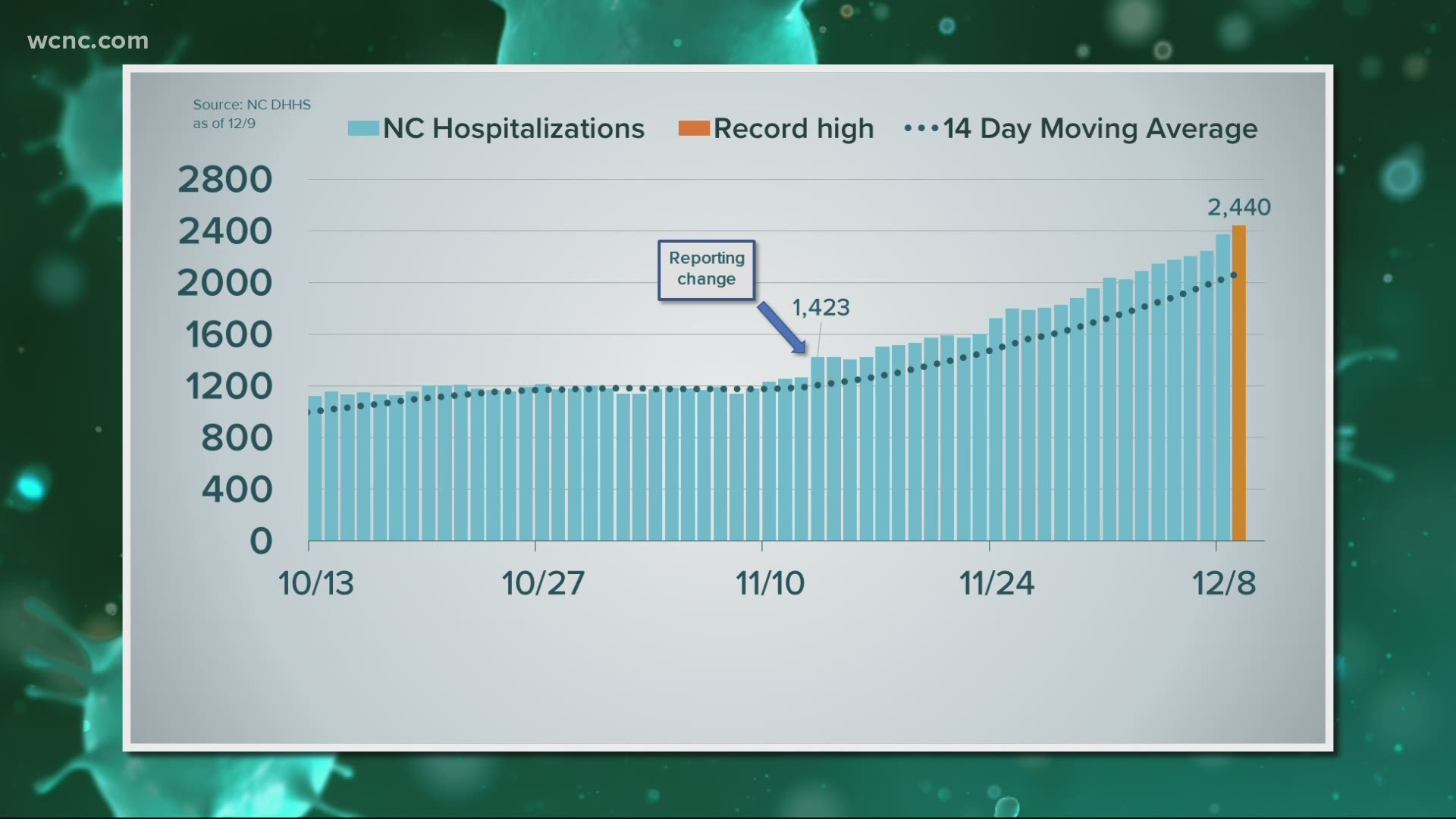CHARLOTTE, N.C. — North Carolina health officials reported a new record of single-day COVID-19 cases, two days before Gov. Roy Cooper's new modified stay-at-home order takes effect.
The Department of Health and Human Services reported 6,495 new cases Wednesday. Hospitalizations also hit a new peak with 2,440 people hospitalized statewide. The previous single-day high for COVID-19 cases was 6,438 on Sunday, Dec. 6.
Health officials say North Carolina is just now starting to see its first cases from Thanksgiving and anticipate things to get worse over the next couple of weeks.
The new restrictions, which take effect at 5 p.m. on Dec. 11, create a nighttime curfew from 10 p.m. to 5 a.m. The restrictions continue through at least Jan. 8, 2021.
On Tuesday, Dr. Mandy Cohen, secretary for NCDHHS, said 48 North Carolina counties are in the "red zone" for critical community spread of COVID-19. More than 80% of counties are in the orange or red on the state's coronavirus spread map. Mecklenburg County, home to Charlotte, was among those counties seeing substantial or critical community spread of the coronavirus.
"You should avoid non-essential activities and avoid people you don't live with," Dr. Cohen said. "I am very worried... Do not wait until it is you or your loved one sick before you wear a mask."
Charlotte-Mecklenburg Schools voted Tuesday to switch back to all remote learning through mid-January to help protect students and school staff members from COVID-19.
The Board voted 6-3 to send most students home starting Dec. 14. The at-home, virtual learning would continue beyond the winter break with a plan conclusion on Jan. 15. Students would then be scheduled to return to a mix of in-person and remote learning beginning Jan. 19.
Businesses, including restaurants, bars, entertainment venues, personal care businesses, most retail stores and more will be required to close at 10 p.m. Alcohol sales are required to stop at 9 p.m. The sale of alcohol cannot resume until 7 a.m.
CMPD said they plan to operate on a complaint basis.
This means they won’t be driving around to catch businesses that may be breaking the rules. And they won’t be putting up checkpoints and conducting traffic stops to ask why people are out past 10 p.m.

